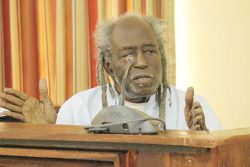 “Eat breakfast like a king, eat lunch like a prince and eat dinner like a pauper.” This maxim is usually attributed to nutrition writer Adelle Davis, and since her passing in 1974, the advice to eat less at night to help with fat loss has lived on and continued to circulate.
“Eat breakfast like a king, eat lunch like a prince and eat dinner like a pauper.” This maxim is usually attributed to nutrition writer Adelle Davis, and since her passing in 1974, the advice to eat less at night to help with fat loss has lived on and continued to circulate.
This includes suggestions such as:
Don’t eat a lot before bedtime
Don’t eat midnight snacks
Don’t eat anything after 7 pm
Don’t eat any carbs at night
Don’t eat any carbs after 3 pm.
I too believe that eating lightly at night is usually very solid advice for people seeking increased fat loss, especially for people who are inactive at night. How-ever, some fitness experts today, when they hear, eat less at night, get annoyed.
Opinions on this subject are definitely mixed. Many highly respected experts strongly recommend eating less at night to improve fat loss, while others suggest that it’s only calories in versus calories out over 24 hours that matters.
The critics say that it’s ridiculous to cut off food intake at a certain hour or to presume that “carbs turn to fat” at night as if there were some kind of nocturnal carbohydrate gremlins waiting to shuttle calories into fat cells when the moon is full. They suggest that if you eat less in the morning and eat more at night, it all “balances itself out at the end of the day.”
Of course, food does not turn to fat just because it’s eaten after a certain cutoff hour and carbs do not necessarily turn to fat at night either (although there are hypotheses about low evening insulin sensitivity having some significance).
What we do know for certain is that the law of energy balance is with us at all hours of the day – and that bears some deeper consideration when you realize that we expend the least energy when we are sleeping and many people spend the entire evening watching TV or on their smart devices.
Let’s make the assumption that most people come home from work, then just sit in front of the TV. Let’s also assume that the majority of people go to bed late in the evening, usually around 10 pm, 11 pm or midnight. Therefore, nighttime is the period during which the least energy is being expended.
If this is true, then it’s logical to suggest that one should not eat huge amounts of calories at night, especially right before bed because that would provide excess fuel at a time when it is not needed. The result is increased likelihood of fat storage.
Many programmes suggest a specific time when you should eat your last meal of the day. However, I’d suggest avoiding an absolute cut off time, such as no food or no carbs after 6 pm, because people go to bed at different times, and maintenance of steady blood sugar and an optimal hormonal balance, even at night, are also important goals.
Me personally? Unless I’m weight training, I have always reduced calories and carbs at night when ‘cutting’ for bodybuilding competitions. It has worked so well for me and will for you also.










